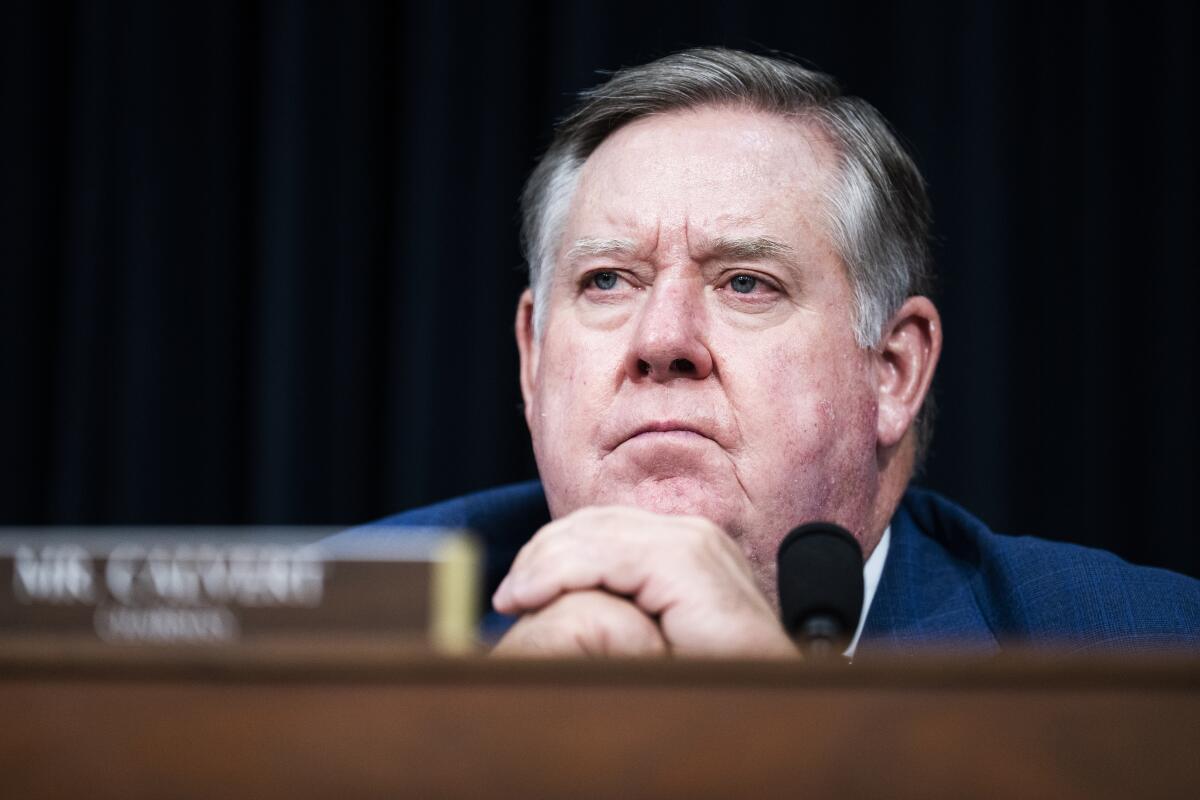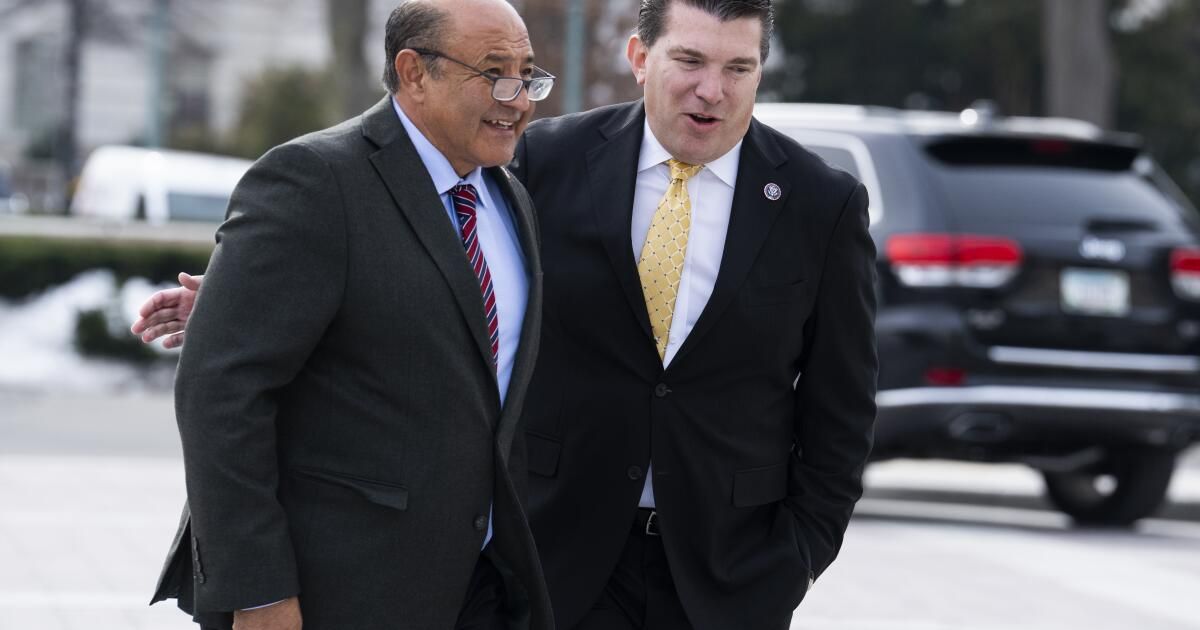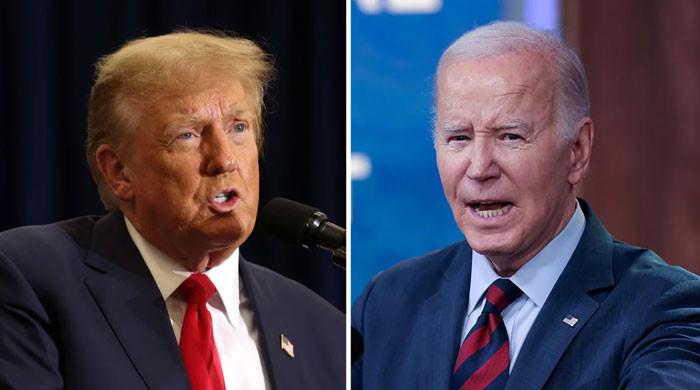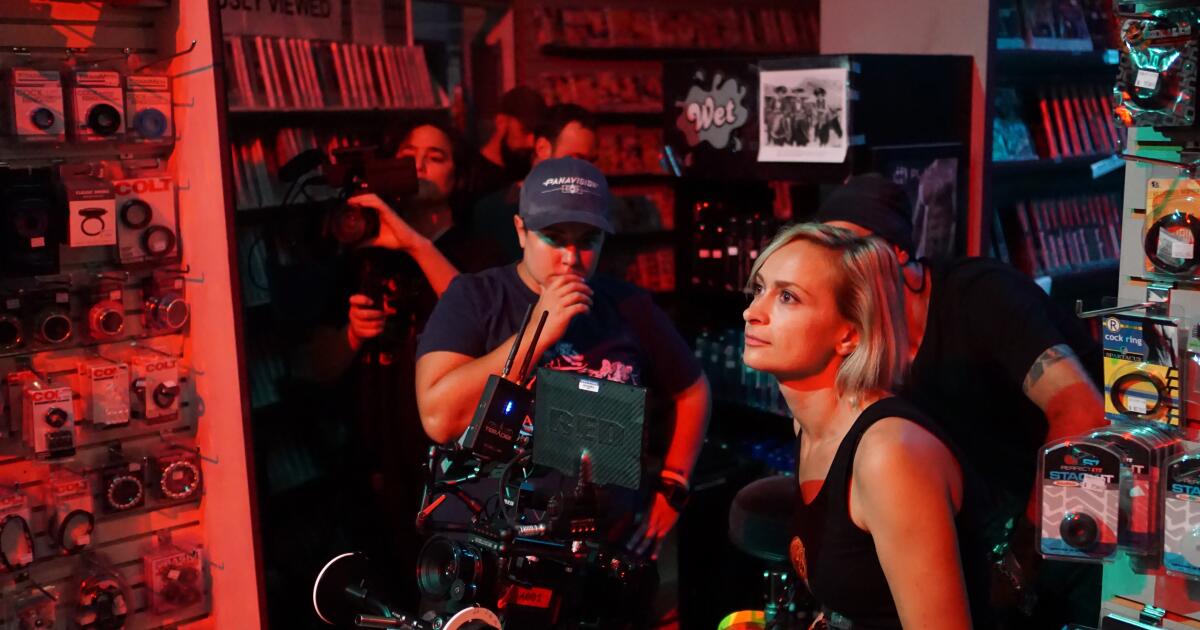Over homemade tacos in a Capitol townhouse, several California members of Congress did something unusual last year: They gathered for a bipartisan comfort food where politics wasn't on the menu.
The table full of Republicans and Democrats represented an opening salvo in an effort by some of the state's newest representatives to build collegiality and cross-party work in a place that in recent years has supported neither.
“We just sit down, break bread and get to know each other,” said event host Rep. Jay Obernolte (R-Big Bear Lake), who was elected in 2020. “We try to invite diverse groups of people who don't know each other.” or we have not even had the opportunity to meet and introduce ourselves to everyone, without an agenda.”
Obernolte said he organized a series of similar bipartisan dinners when he was an assemblyman in Sacramento. After Rep. Sydney Kamlager-Dove (D-Los Angeles) was elected to Congress in 2022, she became her first Democratic co-host in Washington.
“It's about socializing, having camaraderie and finding places for common ground,” said Kamlager-Dove, who served in the state Legislature with Obernolte.
Rep. Sydney Kamlager-Dove (D-Los Angeles) co-hosted a bipartisan dinner for members of the California House of Representatives.
(Kevin Dietsch/Getty Images)
There is no evidence that bipartisan camaraderie has led to bipartisan politics yet. The 40 Democrats and 11 Republicans that California voters have sent to the House of Representatives remain closely aligned with their respective parties on most issues.
Californians' 12% of seats in the House could constitute a powerful voting bloc if they decided to stick together, but they rarely do.
“I'm just amazed. We could have a lot of power to do things that are good for California. And yet we seem to give up some of that because we don't meet regularly,” Obernolte said.
The quest for collaboration by a new generation of House members comes at a turning point for California's representation in Washington.
For many years, the California delegation included two of the most powerful and polarizing members of Congress: former Speakers Nancy Pelosi (D-San Francisco) and Kevin McCarthy (R-Bakersfield). But their role as national party leaders is diminishing. Pelosi resigned from House leadership at the end of 2022 and McCarthy resigned from Congress last year after being ousted as speaker.
The delegation also anticipates a flurry of retirements of elderly members in the coming terms.
“Maybe there's an opportunity there, as there's a generational shift in the California delegation … to take a fresh look at ways to build bridges,” said Rep. Kevin Mullin (D-South San Francisco), who He was elected in 2022.
“There are some common interests there that wouldn't necessarily be divided along partisan lines.”
If the camaraderie continues, it would be a big change from the past. California's congressional delegation has long been “failed and exasperated,” said Dan Schnur, a political communications professor at USC, UC Berkeley and Pepperdine.
Part of that may be due to its size.
“Politicians in smaller states are often forced to put aside their differences out of sheer necessity. A member from California feels no such obligation,” Schnur said.
Large delegations working together can apply a lot of pressure. He pointed to an earthquake research center that New York fought over in the 1980s.
“The difference is that the New York delegation decided to work together to achieve it. And the California delegation was unwilling or unable,” Schnur said.
Keith Smith, an associate professor of political science at the University of the Pacific, said the benefit of the entire delegation working together would be immeasurable, but it has been difficult for California, a state that is geographically, demographically and ideologically diverse.
“Although it is the largest delegation in the House of Representatives, the divisions are strong enough that they do not work together in a way that allows them to exercise that power,” he said.
Instead, partisanship has prevented the delegation from meeting consistently for decades, said Rep. Zoe Lofgren (D-San Jose), who leads the state's Democratic delegation, and her Republican counterpart, Rep. Ken Calvert (R-Corona). , who have both. They have been in Congress since the 1990s. Both said they were unable to attend the Obernolte dinner.
Democrats and Republicans are too far apart on policy to justify routine meetings for the sake of holding meetings, Lofgren said. Although he has requested regular meetings with members of the California Republican Party many times over the years, Lofgren said he forgot to ask at the beginning of this Congress.

Rep. Ken Calvert (R-Corona) leads California's Republican congressional delegation.
(Tom Williams/CQ-Roll Call, Inc via Getty Images)
“There is a very strong disagreement between all the Republican members versus all the Democratic members,” Lofgren said. “About the election and practically everything.”
California representatives are still coming together to help the state even though they are not socializing, he said, noting that the delegation meets frequently to lobby the White House for disaster aid.
“You don't have to have a meeting for that to happen. We wrote letters, we made phone calls, we did zooms. We could sit down, but it hasn't been necessary,” Lofgren said.
Even that has been tested at times. The delegation was unable to meet in 2019 when then-President Trump threatened to withdraw disaster aid to California as it recovered from the Camp Fire, the deadliest and most destructive wildfire in the state's history.
Republicans rejected Lofgren's invitation to a meeting of all delegations in a letter stating that they were “confident that we can prevail against the president.”
Calvert said members work across partisan lines on regional issues within the delegation, but that the long-standing coldness between California's Republican and Democratic representatives is a matter of “philosophical differences.” He said social events like the Obernolte dinner, rather than policy-focused meetings, could be the way to build bridges.
“There are probably members of the California delegation who haven't even spoken to each other,” he said.












